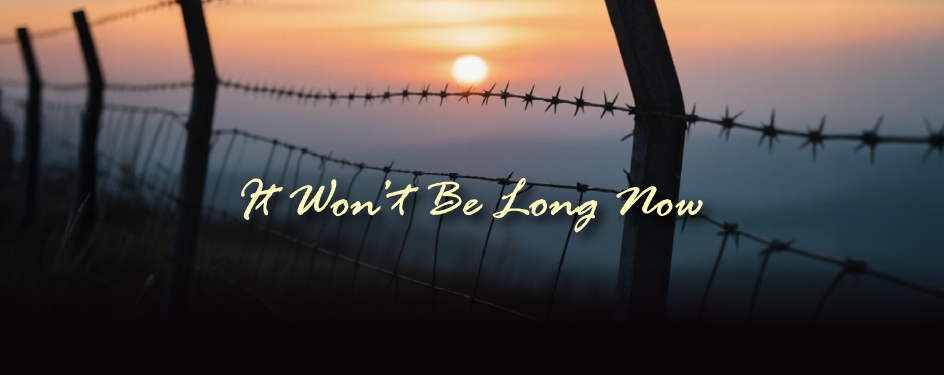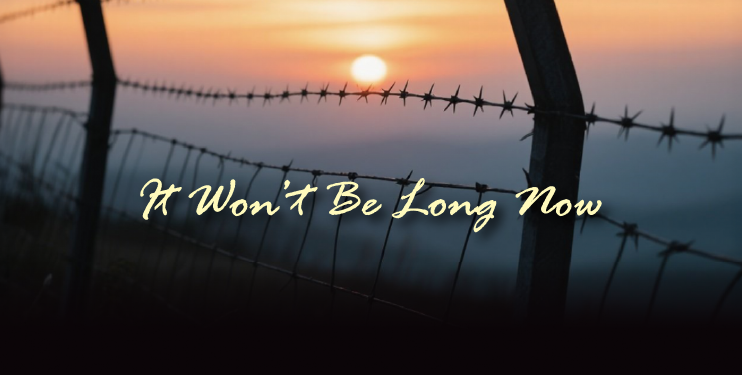

How would one react when being taken as a captive out of the blue? Graham Heywood wrote in his diary, published as a book under the title It Won’t Be Long Now in 2015, that his feelings were more of excitement and amusement than of shock and dismay. It was the afternoon of 8 December 1941 and the Japanese Imperial Army had a few hours earlier stormed into Hong Kong. Heywood, then assistant to the Director of the Observatory, was captured by the invaders when working afield in Yuen Long. One of the very first British prisoners taken by the Japanese forces in the Pacific War, Heywood did not realise then that he would have to spend three and a half years in a prisoner of war (POW) camp in Sham Shui Po.
After going through horrific times, Heywood recorded in his diary the things that he saw and the people whom he met with appreciation and a great sense of humour. On arrival at the camp, he was overwhelmed with gratitude when a number of old Scout friends insisted on making up his everyday items and clothing out of their own slender stocks. He recalled with regard and affection, “These gifts represented a real sacrifice, for my friends only had what they had been able to carry with them …” On a number of occasions, along with other POWs, Heywood was sent to work as a labourer to expand Kai Tak Airport. “Supposing you had a drug which would put you gently to sleep for six months,” a fellow worker said in a little chat during a break one day, “would you take it?” All decided that it would be best to be conscious rather than unconscious. Heywood later amusingly wrote: “If we had known that we should not get out for nearly another three years, I feel sure we should have all voted for the drug.” After all, getting more sleep is a perfect way of passing the time when in great distress.
Despite all the agonising ordeals, Heywood still managed to sarcastically quip about the Hong Kong Daily News, the news sheet published in English by the Japanese administration during the occupation: “We were to understand that entire American Navy had been sunk several times over; yet, curiously enough, the fighting seemed to draw nearer and nearer to Japan.” It is absolutely incredible for POWs to keep a sane mind, not to mention being able to discern the ebb and flow of the war amid a mist of propaganda and disinformation.
Hope, humour and humility are the best antidotes to depression and disorientation, particularly so in POW camps. “Most of us kept our self-respect and our sense of humour; loud bursts of laughter were frequently heard in the camp; people would break into a song, or whistle when they did their washing-up.” Heywood revisited this positive mind-set, “Life was still worth living, and the future was still full of hope.” The prisoners mostly knew that it was the willpower and cheerfulness that counted in their struggle for survival, for dreadful diseases and death were around the corner from the moment they entered the camp. They faced their predicament in a light-hearted manner, as exemplified by Heywood’s account of studying subjects ranging from botany to psychology. For many POWs, the internment presented a golden opportunity to “pick up all sorts of curious knowledge” and meet men from different walks of life, who “had had all kinds of interesting experiences and held the most divergent opinions”.
Heywood’s personal reflection on his captive years provides much food for thought. While hunger and chaos would easily make one lose faith in human nature, time and again he marvelled at the fundamental kindliness of his comrades. The prisoners refused to give in to the cruelties of war, and were always willing to share food and clothing with messmates, which they could ill afford. With a big chunk of life being wasted in captivity, Heywood tried to make the best of each day, and aspired to be a wiser and better man when the internment was over. Perhaps the one thing that is the most touching to contemporary readers is his simple yet profound realisation that one could do perfectly well without luxuries – that material possessions had little bearing on well-being and happiness. He reminisced about the pure joy of learning astronomy through star-gazing on “those dark evenings when no lights were allowed”. There was plenty of time for self-reflection and contemplation, and many revisited their values and spent time thinking about the meaning of life. Instead of crying for the moon, one would be more grateful for the simple yet important things in life such as freedom and family love – those things that are easily overlooked and taken for granted.
Apart from being a captivating account of wartime experience, Heywood’s diary stands as a timeless testament to the courage, resilience and strength of human beings in the face of unthinkable horror and evil. It teaches us that with indomitable optimism, one can shine brightly even in the abyss, and, as the tide turns, shape a better world for the next generation.











